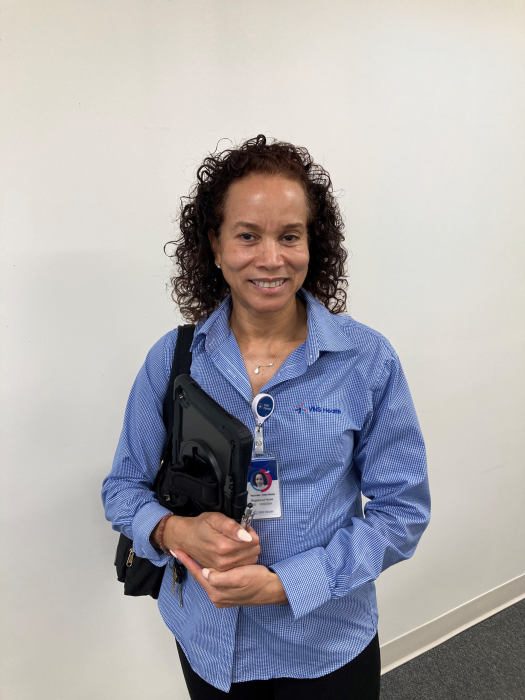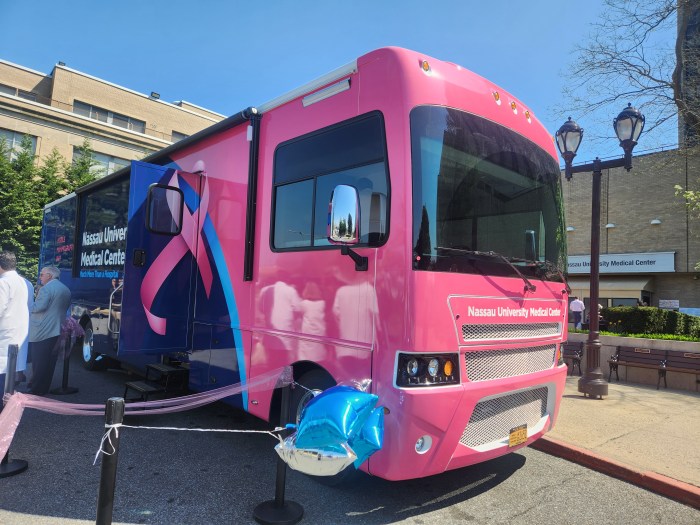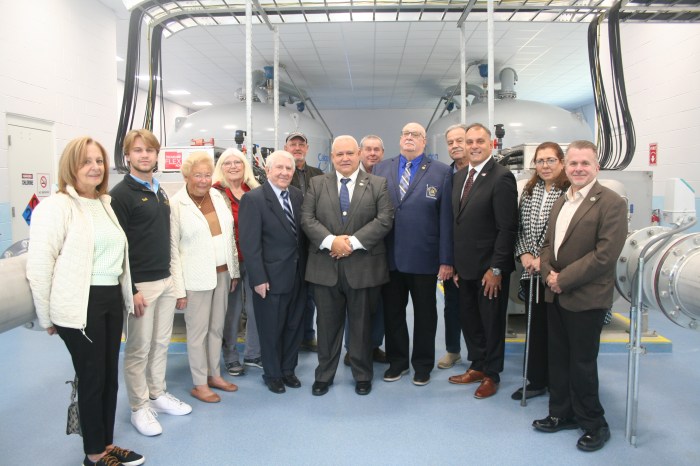As May marks Nurse Appreciation Month, home care nurses across the country are being honored for their essential contributions to the health care system—and few embody that commitment like Sharmaine Delph-Ettienne, a registered nurse with VNS Health Home Care for more than 18 years.
Covering Nassau County, Delph-Ettienne starts her workday by logging into her system at 8:30 a.m., reviewing her schedule and planning her route. From that point forward, her car becomes her office.
“I call the patients to let them know when I’m coming and then I head out to see them,” she said. “My office is my car.”
The patients Delph-Ettienne serves are primarily older adults, though she sees a wide range of ages, starting at 18. Many are recently discharged from hospitals, recovering from surgeries, strokes or managing chronic illnesses such as diabetes or hypertension.
“We’re doing more acute care in the home now,” Delph-Ettienne explained. “Patients who used to stay in the hospital longer are coming home sooner and they need more complex care and teaching.”

That increase in acuity has transformed the home care landscape. Nurses like Delph-Ettienne are often the first medical professionals to identify health issues, coordinate care with doctors and support families who may feel overwhelmed.
“I had a patient recently where the daughter was just emotionally drained,” Delph-Ettienne recalled. “She didn’t know what to do. In that moment, it wasn’t just the patient who needed help—the caregiver needed support, too. So I brought in the social worker immediately.”
The holistic nature of home care nursing means Delph-Ettienne assesses more than just symptoms. She evaluates the patient’s living environment, support system and ability to follow care plans.
“We’re not just treating the patient—we’re treating the whole environment to make sure they can heal,” she said.
Working outside of a traditional medical setting poses unique challenges. Supplies aren’t down the hall and doctors aren’t an intercom away. Communication becomes a critical skill.
“Just this week, I was sent to a patient’s home for wound care and the family said the doctor told them not to do it,” she said. “I called the surgeon directly; he told me he didn’t want the family doing it because the wound bleeds a lot—he was so glad I called.”
That ability to navigate complex situations, think critically and act decisively is part of what makes experienced nurses like Delph-Ettienne so vital in the home care setting.
Before becoming a nurse, Delph-Ettienne worked in finance. The difference in job satisfaction, she says, was immediate and meaningful.
“With nursing, the gratification is almost instant,” she said. “If you provide good care, the patient or the family lets you know. Even if they can’t speak, like a comatose patient I had whose wound healed almost completely—you can see the progress. It makes me feel good. I love my job.”
While she’s quick to acknowledge the strength of her interdisciplinary team—including speech, occupational and physical therapists—Delph-Ettienne also emphasizes the importance of boundaries. Patients often treat nurses as de facto doctors, asking for medical advice beyond the nurse’s scope.
“I always tell them, I’m not a doctor,” she said. “My role is to teach, assess and follow doctor’s orders. If something’s wrong, I’ll reach out to the doctor.”
Still, nurses often catch what others may miss. From medication mismanagement to lifestyle issues, the time and attention home care nurses provide builds trust—and often reveals underlying problems.
“If you spend time with patients, they open up,” she said. “You’ll hear things like, ‘I feel dizzy when I get up.’ Then I look and see they’re taking all five blood pressure meds at once—no one explained to them how to space them out.”
That personal attention extends to Delph-Ettienne’s own well-being. She begins each day at the gym, a ritual she calls “an investment in my health.”
“I see what happens when people don’t take care of themselves,” she said. “I can’t be there. I don’t want to be there. I tell my patients about exercise and diet and I live it too.”
As the nation celebrates Nurse Appreciation Month, VNS Health and patients across Long Island know what they have in Delph-Ettienne: a dedicated professional, a trusted caregiver and a nurse who shows up—every single day—ready to care for the whole person.
“Whatever time you need, I’ll be there,” Delph-Ettienne said. “That’s my promise to my patients.”
































